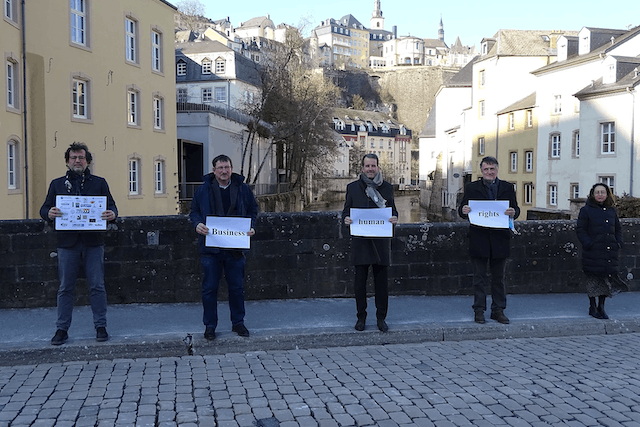The government is currently analysing the feasibility of introducing such legislation, with the University of Luxembourg consulting stakeholders to weigh the costs and benefits of national laws. The grand duchy previously said it would favour an EU-wide approach.
“We welcome a due diligence law in Luxembourg that paves the way for ambitious regulation at the European level,” the 32 companies supporting national legislation said in a joint declaration on 10 February.
The businesses include Naturata, Biog, Luxlait and Grosbusch but also ThyssenKrupp and Peintures Robin, among others.
Researcher Başak Bağlayan who is carrying out the government-commissioned study previously told Delano that national and EU laws are not incompatible but could be mutually reinforcing.
The European Commission is in the process of consulting member countries and stakeholders with a view to developing a directive. If adopted, this would force EU countries to at least enforce minimum standards.
Luxembourg last year launched a human rights due diligence action plan based around awareness-raising, some pilot projects and voluntary commitments. “Experience has shown, however, that voluntary commitments are not sufficient,” the companies said in their declaration. “There is a need for mandatory due diligence adequately implemented by all.”
The grand duchy is running for a seat on the UN Human Rights Council. The 2022 to 2024 mandate will be voted in October by the general assembly. There are three seats opening up in the Western Europe & Other countries group, with Finland and Italy also running.
Activists from the Initiative Devoir de Vigilance during a protest in November 2020 said Luxembourg would only be a legitimate contender for the council seat if it made efforts to implement human rights due diligence laws.
The campaign could turn into an actual competition should the US seek to fill one of the vacancies. Secretary of state Anthony Blinken earlier this month said the Biden administration would “re-engage immediately and robustly” with the council, which the country had quit under Donald Trump.
“Human rights and environmental due diligence legislation would help create both legal certainty and a level playing field. It would ensure everyone is held to the same standard and no company is able to evade its responsibilities without consequences or make profits at the expense of people and nature,” the signatories of Wednesday’s declaration said. “This is what employees, customers, investors and the public expect from us as well.”
A December 2020 survey by the Initiative Devoir de Vigilance said 92% of respondents supported human rights due diligence, with 85% agreeing that damaged parties should be able to sue companies in Luxembourg over their violation of the rights of workers or local communities where they operate.
The New York Times in 2019, for example, published a report highlighting the exploitation of refugee workers and child labourers at hazelnut farms in Turkey, which supply Ferrero. The confectionary company’s European HQ is based in Luxembourg.
